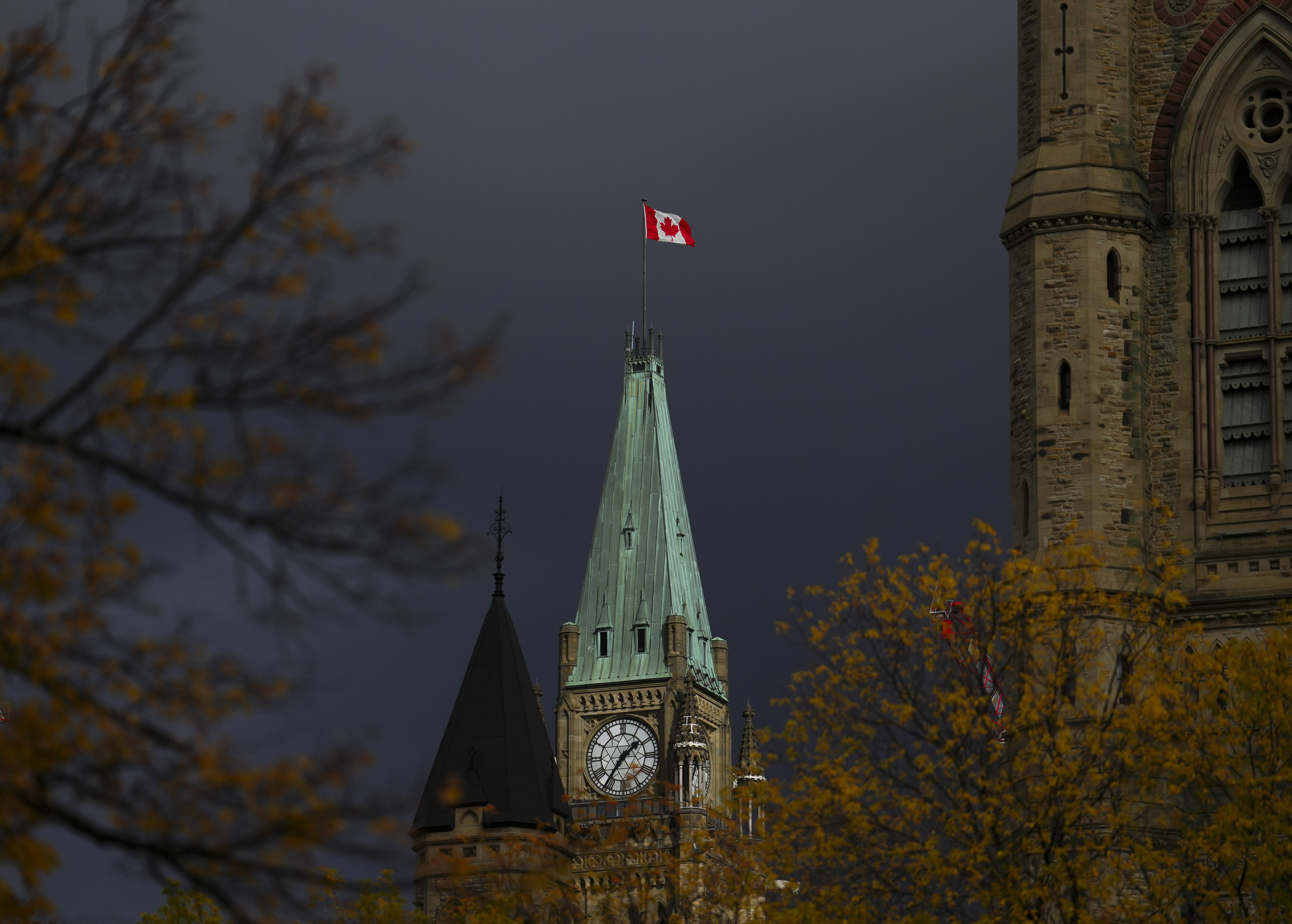The “Lost Canadians” legislation, which aims to fix Canada’s unconstitutional citizenship, received royal assent Thursday after being approved by the Senate on Wednesday.

The term “Lost Canadians” refers to people who were born outside of the country to Canadian parents who were also born in another country.
In 2009, the Conservative federal government changed the law so that Canadians born abroad could only pass down their citizenship if their child was born in Canada.
That was deemed unconstitutional by the Ontario Superior Court in December 2023.
The legislation proposes Canadian citizenship could be passed down to people born or adopted abroad, beyond the first generation, if the parents spent a cumulative three years in Canada before the child’s birth or adoption.
 2:00
New Canadians sworn in on Canada Day at Halifax citizenship ceremony
2:00
New Canadians sworn in on Canada Day at Halifax citizenship ceremony
Saskatchewan Sen. David Arnot argued the bill unfairly applies the substantial connection test to “intercountry adoptees” when it comes to passing down citizenship. This is a legal term that applies to adopted children who were born abroad and raised in Canada by Canadian parents.
Story continues below advertisementArnot said the bill uses the general term “international adoption,” which can include intercountry adoptees. He said these children go through a rigorous immigration process before their adoption in Canada is finalized.

Get daily National news
Get the day's top news, political, economic, and current affairs headlines, delivered to your inbox once a day. Sign up for daily National newsletter Sign Up By providing your email address, you have read and agree to Global News' Terms and Conditions and Privacy Policy.Arnot said that includes provincial and territorial approval, anti-trafficking screens, foreign state approval, federal citizenship reviews and other measures.
“Intercountry adoptees must be treated the same as domestic adoptees. It is a requirement of the Hague Convention that intercountry adoptees have the same rights and treatment as in-country adoptees,” Arnot said.
“Another way to say this is that, because domestic adoptees do not have a substantial connection test, neither should intercountry adoptees.”
Arnot did not try to amend the law because the court has set a deadline for the law to be enacted by Jan. 20, but he urged the immigration minister to make the change in the future.
Immigration lawyers Sujit Choudhry and Maureen Silcoff have been retained for a potential Charter challenge on behalf of intercountry adoptees, to argue they should not be treated differently than domestic adopted children.
Choudhry said that the potential rights violation exists with internationally adopted children who receive Canadian citizenship by grant when their Canadian parents are bringing them home.
 2:44
Canada considers revoking terror suspect’s citizenship
Trending Now
2:44
Canada considers revoking terror suspect’s citizenship
Trending Now
-
![]() Trump says telling military to refuse illegal orders ‘punishable by death’
Trump says telling military to refuse illegal orders ‘punishable by death’
-
![]() Dolly Parton shares ‘health challenges’ after missing Dollywood event
Dolly Parton shares ‘health challenges’ after missing Dollywood event
“The concern is that they are required to complete the requirements for the substantial connection test if, as adults, if they are abroad and have children abroad … Whereas a domestic adoptee doesn’t need to meet that test,” Choudhry said.
Story continues below advertisement“So that’s a form of discrimination that’s prohibited by Section 15 (of the Charter) and also inconsistent with Canada’s international treaty obligations under the Hague Convention.”
Choudhry said he would prefer to see a legislative solution to this issue instead of having to resort to a court challenge.
Both Ontario Liberal MP Nate Erskine-Smith and B.C. NDP MP Jenny Kwan attempted to introduce amendments to clarify the adoption rules, but both were unsuccessful.
 1:04
Canada extends Visa-free citizenship program to Philippines
1:04
Canada extends Visa-free citizenship program to Philippines
When the bill was still before the House of Commons, Conservative and Bloc Québécois members of the immigration committee tried to amend the legislation to state that the three-year period in the substantial connection test needed to take place within five consecutive years.
However, that amendment was removed by Liberal and NDP MPs before the bill was sent to the Senate.
Story continues below advertisementQuebec Conservative Sen. Leo Housakos attempted to bring that amendment back in the Senate, but it was rejected.
More on Canada More videos- 7 Canadians tied to Ryan Wedding arrested and charged. Who are they?
- Carney wraps up UAE visit with $70B investment pledge into Canada
- Freeland to move to U.K. for CEO job at Rhodes Trust
- Conservatives want to ‘amend the heck’ out of border bill’s asylum rules

 Trump says telling military to refuse illegal orders ‘punishable by death’
Trump says telling military to refuse illegal orders ‘punishable by death’
 Dolly Parton shares ‘health challenges’ after missing Dollywood event
Dolly Parton shares ‘health challenges’ after missing Dollywood event
 With more online shopping, porch pirates may be seeking more opportunities this time of year
With more online shopping, porch pirates may be seeking more opportunities this time of year
 Fall food report reveals affordability concerns
Fall food report reveals affordability concerns
 35-year-old Winnipeg man charged with 22 arsons within just 6 months: police
35-year-old Winnipeg man charged with 22 arsons within just 6 months: police
 Alberta’s proposed free speech law — named after Jordan Peterson — faces pushback
Alberta’s proposed free speech law — named after Jordan Peterson — faces pushback


